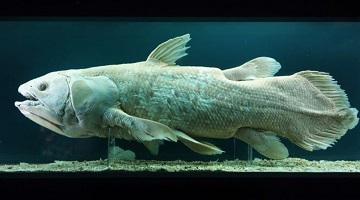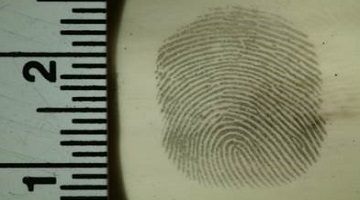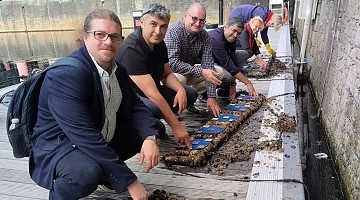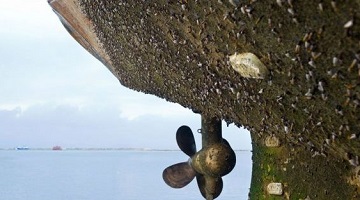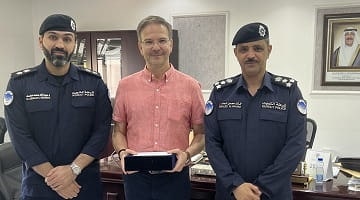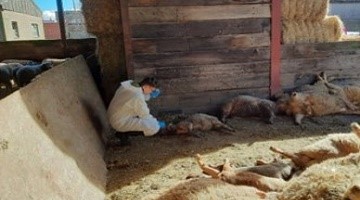About this course
This professionally accredited MSc provides the skills and knowledge for a career in forensic anthropology. Gain hands-on experience in the field and carry out research.
- Benefit from specialised forensic science labs and facilities
- Study a course developed and delivered by leading researchers
- Professionally accredited by the Chartered Society of Forensic Sciences
- Gain hands-on experience in the field by getting involved with excavation and anthropological analysis of real human remains at the Poulton Project medieval cemetery
- Explore leading methodologies for identification of unknown individuals
- Discover how stratigraphic excavation techniques are used to solve missing person cases
- Look forward to employment opportunities in forensic anthropology and related fields
- Take an optional module in skeletal anatomy — a complete introduction to working with bones
Forensic Anthropology combines physical anthropological knowledge and the application of forensic methods and techniques. The discipline is used by the justice system to solve cases where a missing person or an unknown murder victim is involved.
The MSc in Forensic Anthropology provides the skills and knowledge required to pursue a career in the search for missing people, the recovery of evidence and human remains from clandestine graves and the identification of unknown corpses by osteological analysis.
Your studies will develop a broad understanding of these issues, including excavation, laboratory analysis and the courtroom skills necessary to present findings in a trial. You will learn analytical techniques, taphonomic analysis, field methods and genetic applications, as well as having the unique opportunity to excavate and analyse human remains during archaeological excavations at the Poulton Project archaeological site near Chester.
During your Masters you will learn to: apply a broad knowledge base of human osteology and biology to a range of real and theoretical forensic applications and evaluate the burial contexts of human remains, using this to determine the natural and anthropogenic processes involved in creating them. You will operate in a range of science contexts, taking responsibility for your contributions and outputs and generating information using primary observations of human osteology. You will use this information to form responses to the problems presented.
You will be taught in new human osteology laboratories, which house osteology collections and specialist equipment for digital radiography and 3-dimensional imaging, such as laser scanners and micro scribes for advanced morphometric studies.
Course modules
Discover the building blocks of your programme
Your programme is made up of a number of core and option modules and a dissertation as detailed below.
Further guidance on modules
Modules are designated core or optional in accordance with professional body requirements, as applicable, and LJMU’s Academic Framework Regulations. Whilst you are required to study core modules, optional modules provide you with an element of choice. Their availability may vary and will be subject to meeting minimum student numbers.
Where changes to modules are necessary these will be communicated as appropriate.
Core modules
Optional Modules
Professional accreditation/links
MSc Forensic Anthropology is professionally accredited by the Chartered Society of Forensic Sciences.
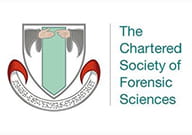
Your Learning Experience
An insight into teaching on your course
Teaching hours
Semester 1
- Monday: Law and Court Room Skills; Advanced Osteology & Skeletal Pathology (option); Forensic Bioscience (option)*
- Tuesday: Forensic Research Methods*
Semester 2:
- Tuesday: Taphonomy & Trauma Analysis*
- Wednesday: Human Identification & Forensic DNA*
- Thursday: Dental Anthropology (option)*
- Friday: Fire Investigation (option)*
- Throughout the week: Archaeological Field Skills lectures and workshops (option)*
- Last week of the semester: Archaeological Field Skills practice (option)*
* Please note that this is a full-time course and teaching can be scheduled any day of the week. Dates and times will vary throughout the year.
Teaching methods
You will learn through a combination of interactive lectures, workshops, Computer Assisted Learning, seminars, literature reviews, extended essays, portfolios, oral presentations, directed supervisions and project work.
Practical skills will involve activities, demonstrations, project work, external visits and seminars (including high profile external/internal speakers). The five-month project will develop your knowledge and understanding of concepts and theories applicable to the analysis of human remains from forensic contexts.
Applied learning
The five-month project will develop your knowledge and understanding of concepts and theories applicable to the analysis of human remains from forensic contexts.
How learning is monitored on your programme
To cater for the wide-ranging content of our courses and the varied learning preferences of our students, we offer a range of assessment methods on each programme.
Assessment methods on this course include: a combination of seen/unseen exam papers with essay and interpretative style questions and coursework featuring: laboratory reports, essays, case studies, oral exams, poster presentations, scientific paper production, e-portfolio, problem solving exercises and the project thesis.
Where you will study
What you can expect from your School
The recently refurbished bioarchaeology facilities, based in the City Campus, feature analytical equipment for morphometric analysis, digital radiography and 3-dimensional imaging as well as an extensive human skeletal collection which you will have access to for teaching and research. This is one of the few places where you will work daily with human bones as part of your modules.
Course tutors
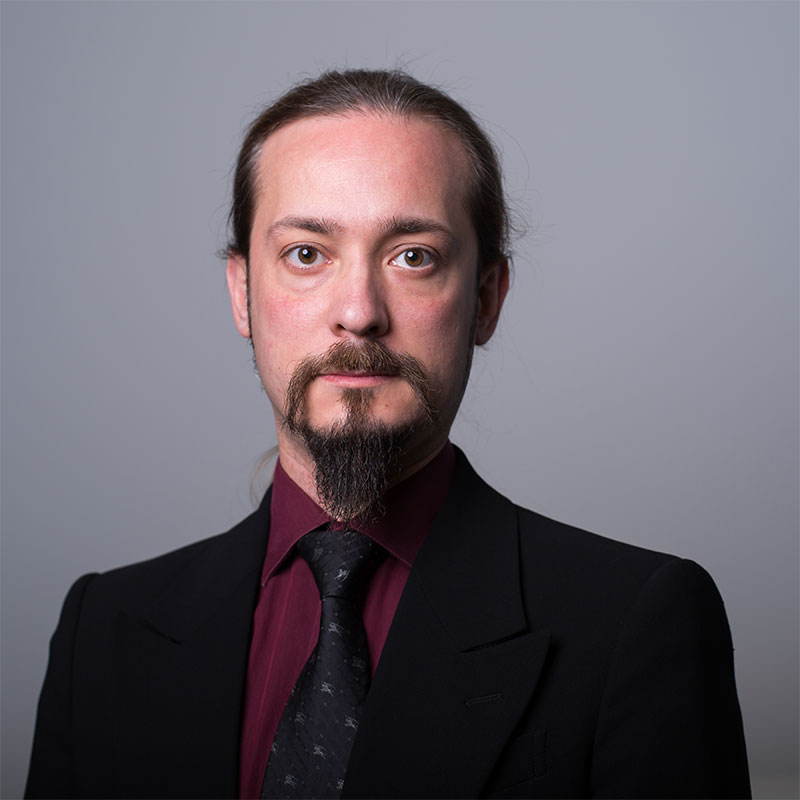
Dr Matteo Borrini
- Programme Leader
I particularly enjoy the fact I can give students professional skills and personal experiences through extensive fieldwork. It's particularly rewarding to know that through teaching I'm touching a life forever.
I particularly enjoy the fact I can give students professional skills and personal experiences through extensive fieldwork. It's particularly rewarding to know that through teaching I'm touching a life forever.
Dr Borrini was a research fellow at the University of Florence and a contract professor at the Papal Theological University San Bonaventura and the University of Florence. He has worked as a scientific consultant for the National Geographic Society and was recently appointed visiting professor of the History of Medicine at Humanitas University (Milan). Dr Borrini is also an expert witness in forensic anthropology/ archaeology for the Italian State Prosecutors Office. Involved in the search, recovery and identification of missing people, Dr Borrini is devoted to WWII investigations and is an honorary member of the Commonwealth War Graves Commission. His research interests include: the search, recovery and identification of missing people and murder victims; cold case investigation; trauma and taphonomy analysis and facial reconstruction. His scientific interests include cadaver dog training.
-
 Lecturer/Senior Lecturer
Lecturer/Senior Lecturer
Career paths
Further your career prospects
LJMU has an excellent employability record with 96% (HESA 2018) of our postgraduates in work or further study six months after graduation. Our applied learning techniques and strong industry connections ensure our students are fully prepared for the workplace on graduation and understand how to apply their knowledge in a real world context.
Completing this MSc degree will give you the skills to continue into academic research or forge a career as a Forensic Anthropologist. Employment opportunities may be available with the Police, Serious Organised Crime Agency and MI5. The Natural History Museum is one of many museums who employ forensic anthropologists and you could also consider graduate schemes within the public sector with, for example: the National Government Development Programme, Civil Service, NHS Management Training Scheme and NHS Clinical Scientist Training Programme.
Tuition fees and funding
- Home fee:
- £10,705
The University reserves the right to increase tuition fees in accordance with any changes to the maximum allowable fees set by the UK Parliament. In the event of such a change, any fee increase will be subject to a maximum cap of 10% of the total course cost as originally stated at the time of your offer.
Fees
The fees quoted at the top of this page cover registration, tuition, supervision, assessment and examinations as well as:
- library membership with access to printed, multimedia and digital resources
- access to programme-appropriate software
- library and student IT support
- free on-campus wifi via eduroam
Additional costs
Although not all of the following are compulsory/relevant, you should keep in mind the costs of:
- accommodation and living expenditure
- books (should you wish to have your own copies)
- printing, photocopying and stationery
- PC/laptop (should you prefer to purchase your own for independent study and online learning activities)
- mobile phone/tablet (to access online services)
- field trips (travel and activity costs)
- placements (travel expenses and living costs)
- student visas (international students only)
- study abroad opportunities (travel costs, accommodation, visas and immunisations)
- academic conferences (travel costs)
- professional-body membership
- graduation (gown hire etc)
Funding
There are many ways to fund postgraduate study for home and international students. From loans to International Scholarships and subject-specific funding, you’ll find all of the information you need on our specialist postgraduate funding pages.
Please be aware that the UK’s departure from the EU may affect your tuition fees. Learn more about your fee status and which tuition fees are relevant to you.
Entry requirements
You will need:
Qualification requirements
How to apply
Securing your place at LJMU
To apply for this programme, you are required to complete an LJMU online application form. You will need to provide details of previous qualifications and a personal statement outlining why you wish to study this programme.
Your university life
From accommodation and academic support to clubs and societies. Find out what LJMU has to offer.
Related Links
Talk to our students
Connect with a current LJMU student for advice and guidance on university life, courses and more.
See what our students are saying
At LJMU we want you to know you’re making the right choice by studying with us. You can see what our students are saying about their experience with us through their reviews on the following websites:
Related Links
News and views
Browse through the latest news and stories from the university
The University reserves the right to withdraw or make alterations to a course and facilities if necessary; this may be because such changes are deemed to be beneficial to students, are minor in nature and unlikely to impact negatively upon students or become necessary due to circumstances beyond the control of the University. Where this does happen, the University operates a policy of consultation, advice and support to all enrolled students affected by the proposed change to their course or module.



















